When I had the idea to start featuring women who are doing inspiring/exciting/cool stuff in their midlife years, I had a couple already in mind. The first was R.L. Maizes, whose debut short story collection I had just finished reading. The other was Talya Tate Boerner, a woman I am thrilled to say is a personal friend. It’s pretty awesome to have friends who inspire you, as many of you probably know.
It’s also awesome to have friends who snort-laugh at the same ridiculous inside jokes and enjoy a good eye-roll as much as I do – and that, for real, is who Talya is for me.
But as a writer, Talya inspires me to work harder, to drive myself to keep making words even when I think that my word-maker is broken. She gets up and writes every single day. It’s a habit I have tried for years to form, and it still eludes me. She also reads more books in a week than I can get through in several months. I’d ask her how she does it, but she’d probably just snort-laugh and roll her eyes. As I said, she’s inspiring.
Talya just released her second book, a self-published memoir she wrote about her late father-in-law called Gene, Everywhere. Her first book was The Accidental Salvation of Gracie Lee, a wonderful story based on her girlhood spent in eastern Arkansas in a little town along the Mississippi River.
Let’s dig in!
Q&A with Talya Tate Boerner
When did you figure out you were a writer? Was it something you knew since you were young, or did you come to writing later?
I think I’m still figuring it out.
From the time I was old enough to check out books from the Osceola Public Library, I knew I wanted to write a book someday. I even co-authored a horrendously cheesy novel in high school. Seriously, don’t ask…
I graduated from college with a degree in economics. Right out of college, I started working [in Dallas] as the administrative assistant for the chairman of the board of a Dallas financial institution. I worked in banking twenty-six years. At age fifty, after a sort of lightbulb moment, I quit my job and gave writing a go. When I decided to leave, I was the senior commercial lender of the Dallas market (still working with the same bank owners). Yes, I had fallen into a tractor-tire-sized rut.
I have a right brain / left brain tug-of-war going on. I think it keeps me balanced, really.
Who are some authors who inspire and challenge you, both as a reader and a writer?
In no particular order,
Donald Harington, Sylvia Plath, Robert Olen Butler, Jeffrey Eugenides, Charles Frazier, Charles Portis, Eudora Welty, Flannery O’Conner, Paulo Coelho, Margaret Atwood, Harper Lee, Toni Morrison, Nell Leyshon, Marguerite Duras, Terry Kay, Mark Twain… I.Could.Go.On.And.On.
Did you attend an MFA program? If so, how did it benefit you (or not)? If not, do you think it’s been harder to get published?
No, I do not have my MFA, but it is on my bucket list. I think everything a writer does to improve her craft and strengthen her connections in the industry will eventually help attract a publisher or agent. I view an MFA as another piece of the puzzle, something that isn’t necessary, but would possibly open additional doors.
With respect to becoming published, the process is completely unpredictable. No two authors are the same. I don’t imagine any two experiences are the same either. The truth is anyone can become published today, depending upon the path a writer is willing to take.
Do you believe your experiences in writing/publishing have been about the same as writers younger than yourself? If not, what has been different?
I have no idea. I’m sure ageism exists in publishing as much as any other industry. It isn’t something I’ve noticed or worried about.
What would you say to writers who are trying to break in as a person over 40? Any advice? Anything they should NOT do? Or maybe just reassurance that they’re not crazy?
I say if you love to write, then by all means WRITE.
[And here’s where my friend kicks my procrastinating ass. LM]
I believe good writing will eventually be discovered no matter the author’s age. But like anything worth doing, it won’t happen without dedication and commitment. The definition of “discover” may not look or taste the way you imagined. At least for me, my image of success has changed as I’ve gotten older.
They tell us to “write what we know”. What do you know?
If this old adage “write what you know” holds even a smidgen of truth, this is where older writers may have a slight edge over younger writers. I’ve had more experiences simply because I’ve circled the sun more times than someone fresh out of college.
What do I know?
So much and nothing at all. Does that sound like a cop-out?
I know what it looks like to glance in the mirror and see my mother’s reflection. I know what it feels like to be afraid of my own shadow. To experience the joy of growing things. To hear my voice tremble; feel my palms sweat. To worry over a sick child late at night. To travel back in time with a song on the radio; to remember every word even though I’ve not heard it in years. To jolt from fear and laugh until I cry. To lose all track of time doing something that stirs my soul. To taste blood in my mouth. To read a letter from a stranger who was changed by my words. To be so rooted to a place I can conjure the smells of classrooms and cafeterias long gone.
I know there is room enough for another story. And I know not everyone will like mine.
What’s your writing process?
I write in the early morning hours. I begin with a simple journal entry, a “Dear Diary” summary of the day before. This typically leads to something more meaningful. Sometimes it doesn’t.
Sometimes I take a random sentence from the book I’m reading and use it as the starting point for a new story.
I don’t typically work with prompts, but I do like to make lists when I get stuck. (I learned this trick from teacher, Crescent Dragonwagon.)
[Crescent is a writer, chef, teacher, playwright, and “bon vivant” with a storied connection to Arkansas who I’ll definitely be introducing here at some point in the future! LM]
How is your process different for short stories vs. essays vs. a novel?
My process is similar, although when applied to a novel, the scope is so much larger it feels completely different.
First, I get the story down on paper. I am not a plotter; I let the story take me where it will. And yes, I do some editing as I go. I can’t help myself.
Once a rough draft is completed, the serious editing (which I find the most fun part) begins. I read aloud, and I read sentences within a paragraph backwards to make sure the individual sentences stand alone. For novels, I look at chapter length and try to balance them. I search for repetitive/over-used words. Grammarly is my best friend.
Tell me about your writing community. Do you have a group you spend time with or are you pretty solitary?
I am rather solitary. I belonged to a writer group in Texas that I very much enjoyed. For a short time, I participated with a writer group in Fayetteville. What worked best for me during the writing of Gene, Everywhere was working with a critique partner. She’s a writer friend whose opinion I value. We exchanged pages weekly, providing critique and editing of each other’s work.
I belong to two book clubs in Fayetteville. They provide me with an ongoing list of to-read books, often books I wouldn’t normally read. And they’ve been supporting of my writing too.
Coffee or tea? What kind of milk?
Coffee in the morning with lactose free milk and no sugar. (BTW, coffee is the only thing I’ve hoarded during these coronavirus times…)
Iced tea in the afternoon.
I also like green tea.
What’s your favorite way to “cleanse your palate” when you need to step away from the page for a bit?
I work in the garden, read, and walk Lucy and Annabelle, our miniature schnauzers.
****
Talya is not only a wonderful writer, she also manages a very active social media presence on Facebook and Instagram as Grace, Grits & Gardening. She shares beautiful images of her garden and her sweet pups, among other things. Be sure to follow her for fun posts, including her regular “Sunday Letter” on her blog. I hope you’ll stop by, and be sure to tell her I sent you.


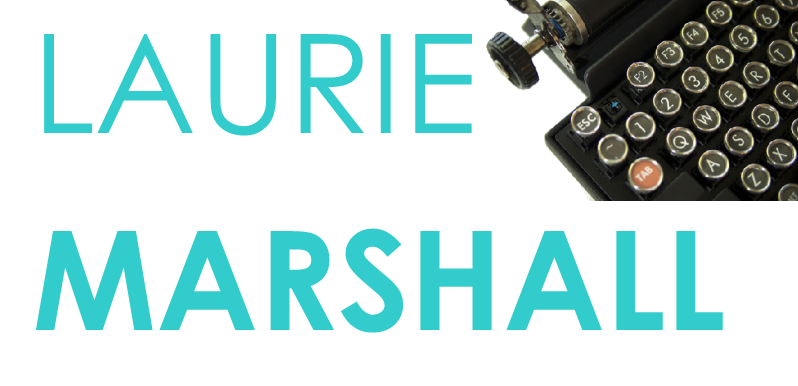
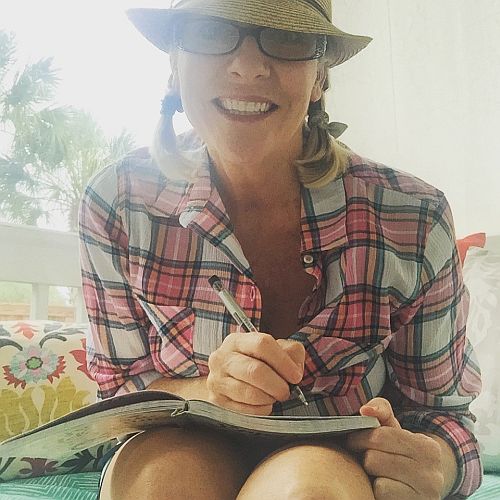
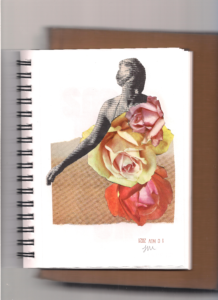
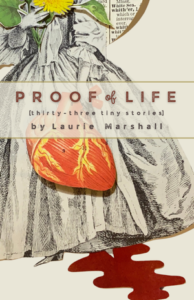
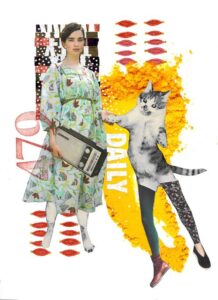
Talya responded as beautifully as she writes her stories.